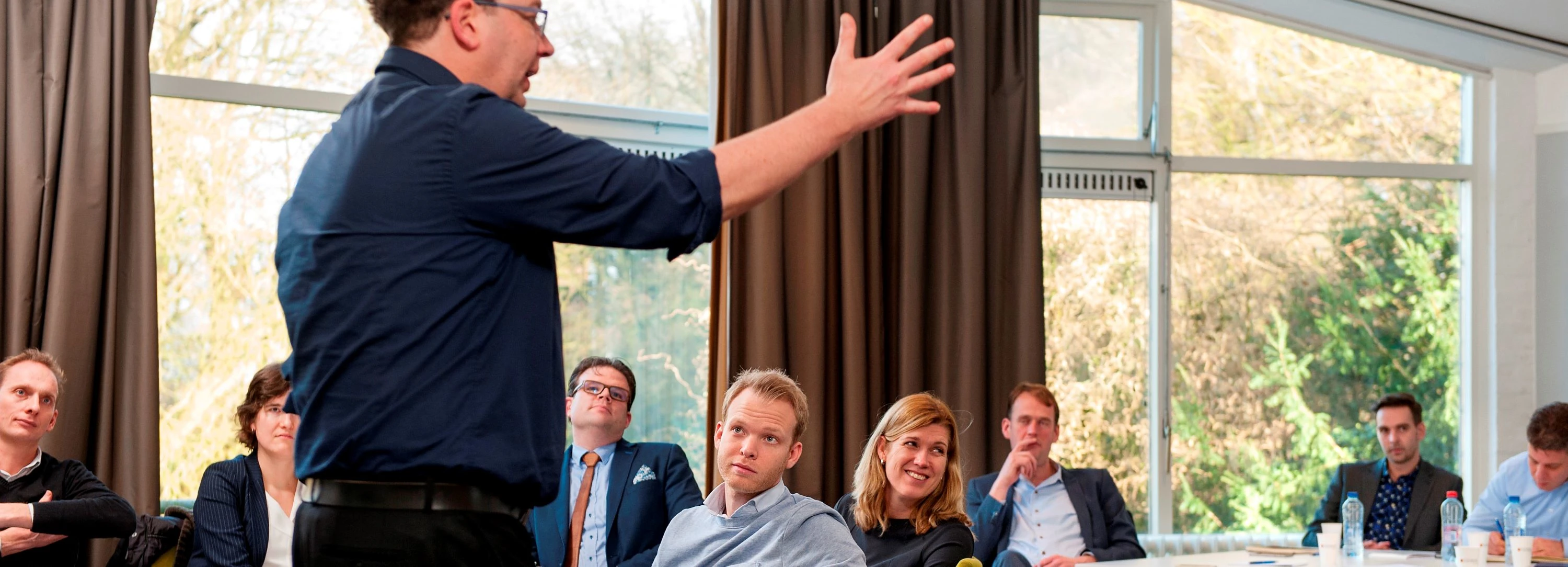'The role businesses play and the responsibilities they have in the story of climate change and human rights has two sides. There are ethical and legal aspects, but the subjects offer many chances as well.' Jan van de Venis, lawyer and owner of JustLaw, states. He is a coordinator and keynote speaker for the ‘Corporate responsibility in relation to climate change’ conference that will be held on January 18 at Nyenrode Business University.
‘The notion that everybody plays their part and has a growing responsibility are the ethical and legal parts of the story: Doing something for those in developing countries that are already noticing the effects, is not enough. We also have the moral obligation to look out for our own children and future generations. If we don’t act now, we’ll leave them in an unstable world. One with rising sea levels and increasingly extreme weather that is unsafe and has drinking water problems. This is also connected to human rights. The extremely dry weather in the Netherlands last year almost jeopardized the human right to drinking water. The rising sea levels are a great risk to us and it endangers our right to live. As well as the emission of particulates from burning fossil fuel, a danger to our right to health. Extreme drought and immense rains often hit areas that are already populated by vulnerable and poor people. People that are the least responsible for climate change often have to deal with the worst effects of the phenomenon. That is why countries with high CO2 emission scores have a bigger responsibility to change into a society with little to no CO2 emission. All this is confirmed by the United Nations Human Rights Council.’
A world of opportunity
‘On the other side this also offers huge opportunities for some businesses,’ emphasizes Van de Venis. ‘They can dive into markets that have not yet been conquered by other companies and sustainable companies have less trouble attracting and keeping young employees. Two useful advantages. In order to get businesses to take their responsibility for climate change, two things are needed: I call it the carrot and the stick. The carrot is the incentive for them to take action and work towards sustainability. The stick is there to reprimand, by taking legal action for example.
Reducing CO2 emissions
‘For example, Milieudefensie (a Dutch environmental organisation), has sued Shell, a case that will start in April and that will be discussed during the congress. Another speaker at the congress, from German Watch, will talk about his support for the Peruvian mountain guide that has filed a lawsuit against German energy giant RWE. We are also proud to announce that commissioner Roberto Cadiz from The Philippines’ human rights council will attend the congress. This human rights council will soon come with a verdict on the biggest global CO2 emissions, the so-called Carbon Majors. They have the power to persuade the government of the Philippines as well as other governments to create stricter rules in order to reduce CO2 emission.
Motivated managers
Van de Venis has noticed a growing awareness around climate change. ‘Many companies today acknowledge that it exists. Just ten years ago groups like Greenpeace and Amnesty didn’t really cooperate on this subject, because the environment and human rights were seen as two different worlds. The past years a lot has happened in context to the UN. Like the United Nations Framework Convention on Climate Change (UNFCCC) and the resolutions of the Human Rights Council. Consideration for the environment, in the perspective of human rights, is growing. As well as the realisation that companies have an increasing responsibility and obligation to act. The first lawsuits against governments are now followed up by lawsuits against companies, sometimes even conducted by governments. We also notice a growth in activist shareholders, who are gaining power. At Shell for example, where shareholders support resolutions that will make the company invest in renewable energie. Organisations like pension funds are becoming more and more aware of the projects and companies they invest their money in: sustainable businesses are gaining ground. Because it works out ethically and legally but also due to the growing risks for stranded assets. If this continues, non-sustainable companies will soon not receive investment money anymore.
We observe a shift within companies. The number of managers that really wants to invest in sustainability, sometimes even beyond the company’s policy, is growing. The increase of social involvement at companies doesn’t just come from the outside, but very much from the inside as well. Something we will be discussing extensively on the 18th of January.
On January 18, 1019 from 09:00 to 04:15 the conference 'Climate Responsibilities of Business: Business, climate change, human rights' will be held at Nyenrode Business University.
Read more about the speakers and the program of (pdf)
Related programs
-
Digitalization and Boardroom Dynamics
Start date: 24 March 2026Language:- English
Location:- Breukelen
The module Digitalization and Boardroom Dynamics looks at technology's effect on the board. Part of the Modular Executive MBA Business & IT.
View program
